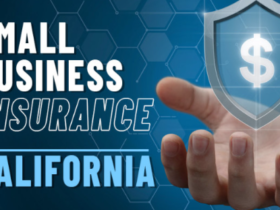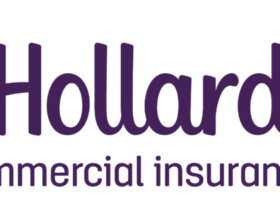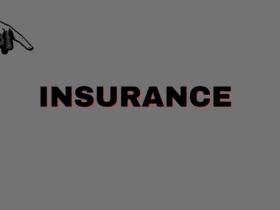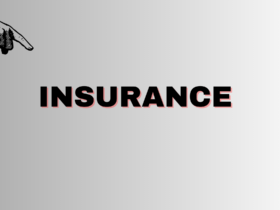General Liability Insurance
General Liability Insurance ,Every business, regardless of size or industry, faces risks. From customer injuries to property damage, unexpected incidents can result in costly lawsuits or financial losses. This is where general liability insurance comes in—a cornerstone of any risk management plan.
In this comprehensive guide, we’ll dive into what general liability insurance is, why it’s essential, what it covers, and how to choose the right policy for your business.
What Is General Liability Insurance?
General liability insurance, often referred to as business liability insurance, is a type of coverage that protects businesses against claims of bodily injury, property damage, and personal or advertising injury caused by business operations, products, or employees.
Key Features:
- Broad Coverage: Protects against a wide range of risks.
- Third-Party Focus: Covers claims made by customers, clients, or other third parties.
- Legal Defense: Includes legal fees, settlements, and judgments.
General liability insurance doesn’t just protect businesses; it also reassures clients and partners that you’re prepared to handle potential issues responsibly.
Why Is General Liability Insurance Important?
1. Legal and Financial Protection
Lawsuits are not uncommon for businesses, even those operating with the best intentions. General liability insurance shields your company from the financial burden of legal claims.
2. Required for Contracts
Many clients, landlords, and vendors require proof of general liability insurance before entering into agreements.
3. Enhances Business Credibility
Having insurance demonstrates professionalism and a commitment to addressing potential risks, boosting client confidence.
4. Protects Against Unforeseen Events
Accidents happen, and without proper coverage, even a minor incident could lead to significant financial losses.
What Does General Liability Insurance Cover?
The primary purpose of general liability insurance is to cover claims related to third-party bodily injury, property damage, and reputational harm. Let’s explore these in detail:
1. Bodily Injury
Covers medical expenses, legal fees, and settlements if someone is injured on your business premises or due to your business operations.
- Example: A customer slips and falls in your store, requiring medical attention.
2. Property Damage
Protects against claims involving damage to someone else’s property caused by your business.
- Example: Your employee accidentally damages a client’s expensive equipment during installation.
3. Personal and Advertising Injury
Includes coverage for claims of defamation, copyright infringement, or other reputational harm.
- Example: A competitor sues you for making false advertising claims.
4. Legal Defense Costs
Covers attorney fees, court costs, and settlements, even if the lawsuit is groundless.
What Isn’t Covered by General Liability Insurance?
While general liability insurance offers broad protection, it doesn’t cover everything. Common exclusions include:
- Professional Errors: Claims related to mistakes in professional services require professional liability insurance.
- Employee Injuries: Workplace injuries are covered under workers’ compensation insurance.
- Vehicle-Related Incidents: Business-owned vehicles require commercial auto insurance.
- Intentional Acts: Coverage excludes intentional harm or fraudulent activities.
- Damage to Your Property: For protection of your own property, you’ll need commercial property insurance.
Understanding these limitations helps you identify additional policies your business might need.
Who Needs General Liability Insurance?
While all businesses can benefit from general liability insurance, it’s particularly essential for:
1. Small Businesses and Startups
Smaller businesses often have fewer financial resources to handle lawsuits, making insurance critical.
2. Retail Stores and Restaurants
High foot traffic increases the risk of customer injuries and property damage.
3. Contractors and Freelancers
Many clients require proof of insurance before hiring independent professionals.
4. Event Organizers
Public events pose increased risks of injuries and property damage.
5. Online and Media Businesses
Even digital businesses face risks of advertising or copyright claims.
How Much Does General Liability Insurance Cost?
The cost of general liability insurance varies depending on factors such as business size, industry, location, and coverage limits. On average, small businesses pay between $400 and $1,500 per year for a policy.
Factors That Influence Premiums:
- Industry Risks: High-risk industries like construction have higher premiums.
- Business Size: Larger operations with more employees or locations may cost more to insure.
- Claims History: A history of frequent claims can increase rates.
- Coverage Limits: Higher coverage limits lead to higher premiums.
How to Choose the Right General Liability Insurance
Selecting the right policy is crucial for adequate protection. Here’s a step-by-step guide:
1. Assess Your Risks
Identify potential risks specific to your industry and operations.
2. Determine Coverage Limits
Consider the value of assets at risk and potential legal costs when choosing limits.
3. Compare Providers
Research and compare policies from multiple insurance companies to find the best fit.
4. Understand Policy Exclusions
Ensure you’re aware of what’s not covered to avoid surprises.
5. Bundle Policies
Combine general liability insurance with other policies, like property or cyber liability insurance, to save on costs.
Benefits of General Liability Insurance
1. Financial Stability
Prevents unexpected claims from crippling your business financially.
2. Peace of Mind
Allows you to focus on running your business without worrying about potential lawsuits.
3. Contract Opportunities
Many clients and vendors require proof of insurance, opening doors to more business opportunities.
4. Customized Coverage
Policies can be tailored to your business’s unique risks and needs.
Common Myths About General Liability Insurance
Myth 1: Small Businesses Don’t Need Insurance
Even small businesses face risks, from customer injuries to property damage claims.
Myth 2: It Covers All Business Risks
General liability insurance provides broad coverage but doesn’t protect against professional errors or employee injuries.
Myth 3: It’s Too Expensive
The cost of a lawsuit far outweighs the annual premium of general liability insurance.
Real-Life Examples of General Liability Claims
Case 1: Customer Injury in a Retail Store
A customer slips on a wet floor and breaks their arm. The general liability policy covers medical expenses, legal fees, and a settlement.
Case 2: Property Damage During a Service Call
An electrician accidentally damages a client’s antique furniture. The policy compensates the client for the repair costs.
Case 3: Defamation Claim in Advertising
A competitor files a lawsuit over misleading advertising. The policy covers legal defense and any damages awarded.
Conclusion
General liability insurance is an indispensable safeguard for any business. From covering medical expenses to defending against lawsuits, it offers comprehensive protection against unforeseen risks.
Whether you’re a small business owner, a contractor, or a freelancer, investing in general liability insurance is a smart decision. It not only secures your financial future but also enhances your credibility and opens up new opportunities.
By understanding your risks, comparing policies, and choosing the right coverage, you can ensure your business thrives no matter what challenges come your way. Protect your business today with general liability insurance and operate with confidence.










Leave a Reply
View Comments